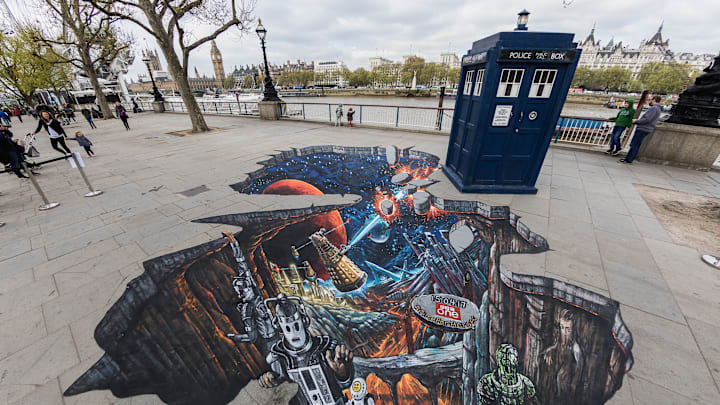The Nathan-Turner Era

Peter Davison Years (1982-1984)
While Tom Baker's time as the Doctor is still held up as some of the show's best, it came to an end thanks to major changes behind the scenes. Foremost among these was the appointment of John Nathan-Turner as the show's new producer.
Nathan-Turner changed the tone of the show drastically, which was a major factor in Tom Baker deciding to move on. While audiences had largely accepted the changing cast before, however, there was more resistance after having Tom Baker in the lead for such a long period of time.
After having served as a production manager for the first three seasons of All Creatures Great and Small, John Nathan-Turner chose Peter Davison, who had played Tristan Farnon, as the next Doctor. They intended to change as much about the character as possible, so Davison's version would not be seen as a lesser version of Tom Baker's.
This period is known for its nostalgia, with many returning characters and enemies. The Master returned, now played by Anthony Ainley, and the Time Lord Omega was played by Ian Collier. The show attempted to go back to its roots, and while it doesn't have as much of a mark in the history of the series as Tom Baker's run, it did succeed in keeping the show going.
Perhaps the most pivotal moment within this run was the special "The Five Doctors." The story aired on the series's 20th anniversary, cementing the trend of honoring old characters and plots in a nostalgic episode.

Colin Baker Years (1984-1986)
Colin Baker began the trend of hiring actors who had previously had a small role on the show (which would become more prevalent during the revival). He had previously played Commander Maxil in "Arc of Infinity."
The BBC 1 Controller, Alan Hart, switched the episode length from 25 minutes to 45, which began making each episode slightly more cinematic. While this would prove to be a good decision in the future, the darker tone of the series did not. Many viewers and executives disliked how violent the Doctor was willing to be.
In 1985, there were rumors that the show was going to be canceled. While some fans might have agreed with the criticisms, they didn't want the show to end. There were protests, and while there was a significantly longer gap between seasons, Colin Baker did return in 1986.
However, the BBC laid the problems with the show at Colin Baker's feet, removing him from the role before the end of his contract.

Sylvester McCoy Years (1987-1989)
Though John Nathan-Turner wanted to be done with the series, nobody seemed to know what to do with it. So he continued to function as the show's producer. He hired Sylvester McCoy to play the Doctor and pulled together a team of mostly inexperienced writers to keep the show going.
Andrew Cartmel served as script editor during this period, and he pushed for the Doctor to become a more manipulative figure. This darker tone seemed to work fairly well, but the show seemed to be past redemption. What was expected to be the final episode aired on December 6, 1989.
